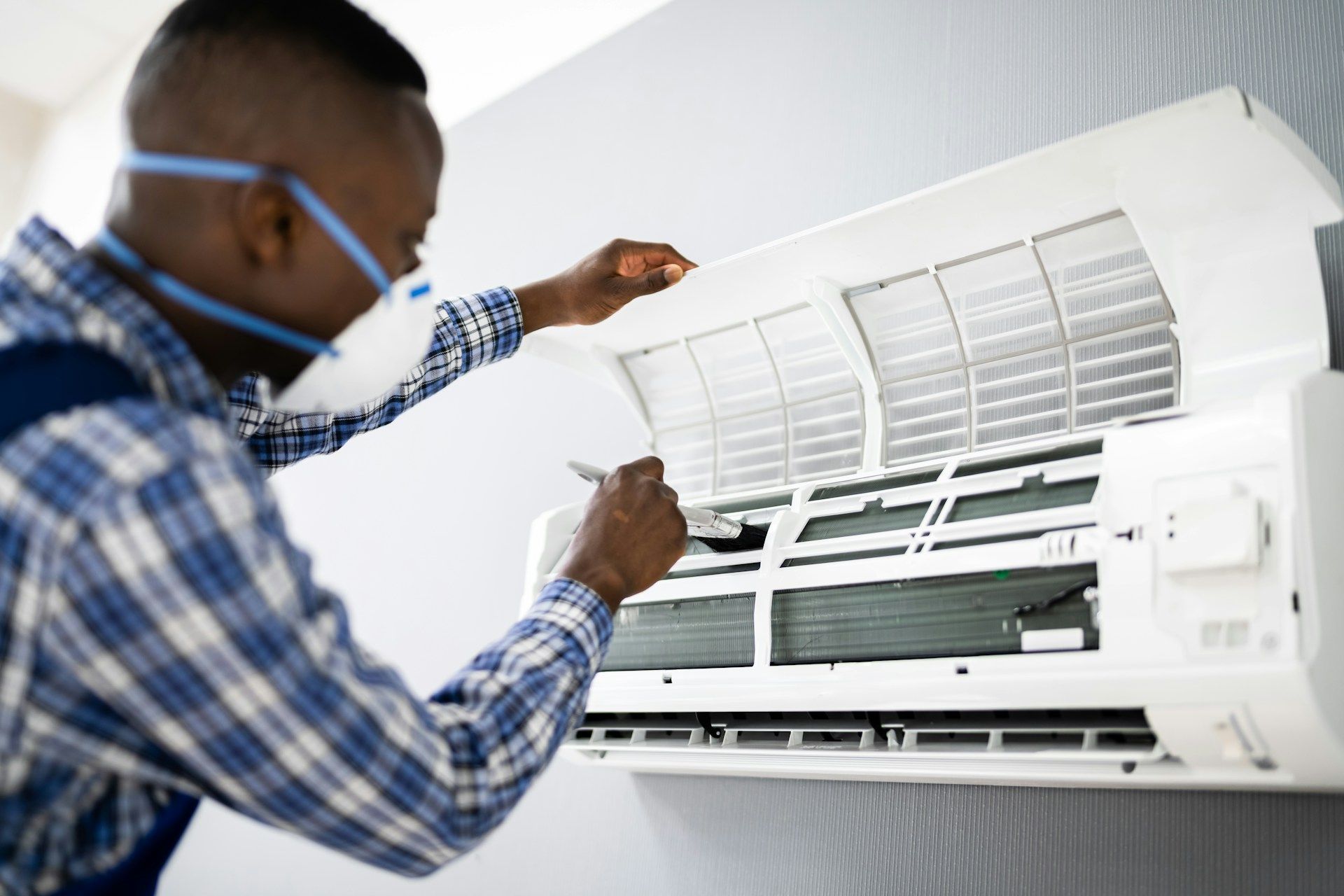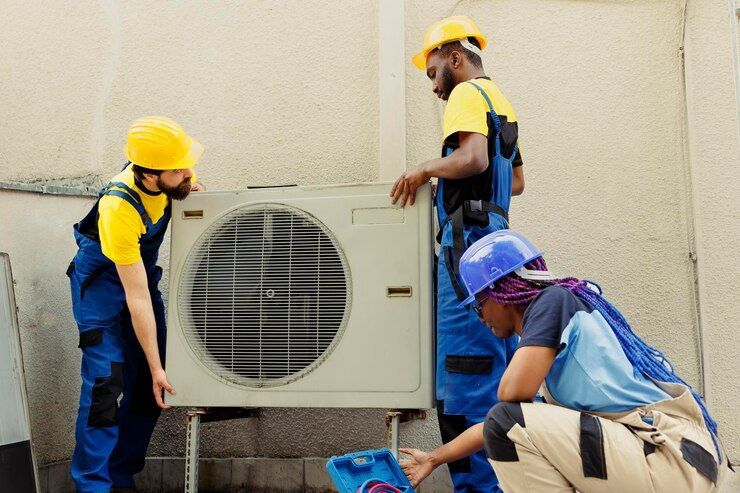Call or Text:
(270) 314-2158
What You Should Do When Your HVAC System Makes Noise
HVAC systems are essential for keeping your home comfortable, but occasionally, they might start making unusual noises. These sounds can be more than just annoying; they might signal that something needs attention. Understanding what these noises mean and how to deal with them can help you keep your system running smoothly.
Different noises can indicate various issues. A banging sound might mean something is loose, while a hissing noise can signal a problem with airflow. Paying attention to these noises and knowing when to act can prevent bigger problems down the line.
Sometimes, you can troubleshoot these noises yourself with a few simple checks. However, it’s important to know when it's time to call in a professional. By addressing these sounds promptly, you can ensure your HVAC system remains efficient and keeps your home cozy.
Identifying Common HVAC Noises
HVAC systems are often quiet, but they can sometimes make strange noises that might indicate something is wrong. Recognizing these sounds can help pinpoint potential issues before they become severe.
- Banging or Clanking: These sounds usually mean something is loose or broken inside the compressor. It might involve the fan blades or parts that have come loose and are hitting something as they move. This noise is one of the more serious signs, often requiring quick attention.
- Hissing: If you hear a hissing noise, it might be a refrigerant leak or an issue with the ductwork. These leaks can affect your system's efficiency and might cause further damage if not addressed. Hissing can seem minor but often requires professional evaluation.
- Clicking: Clicking noises at the beginning or end of a heating/cooling cycle are common. However, continual clicking might suggest an electrical issue, such as a problem with the thermostat or a relay.
- Rattling: This noise could simply mean something is loose, like screws or panels. If ignored, it might lead to bigger problems if parts start moving around too much.
Distinguishing between minor and serious noises is essential. Minor noises like occasional rattling might not need urgent attention, although they should not be ignored forever. In contrast, recurring clanking or continuous hissing usually signifies more significant issues needing immediate professional care.
Understanding these sounds helps in taking the right steps to maintain your HVAC system in good condition, offering peace of mind and avoiding sudden breakdowns.
Troubleshooting Noise Issues Yourself
If your HVAC system starts making unusual noises, there are some simple checks you can perform before calling a professional. These steps can help you determine if the problem is something you can fix on your own.
- Tighten Loose Parts: Inspect the system for any loose screws or panels. Use a screwdriver to carefully tighten them. Ensure the system is turned off to avoid any electrical mishaps.
- Inspect Air Filters: A clogged air filter can cause the system to overwork, resulting in unusual noises. Check and replace the filter if it's dirty. Regular replacement can help prevent this issue from occurring.
- Check Vents for Blockages: Make sure that air vents are not blocked by furniture or other obstructions, as this can lead to strange noises and decrease system efficiency.
While performing these checks, safety is essential. Always switch off the system before inspection to avoid electric shocks. Never attempt to open parts of the HVAC unit that are sealed, as it can be dangerous without the right tools or expertise.
These basic improvements might solve common noise problems and enhance system performance. If the noises persist, it might be time to seek professional help. Regularly checking these components ensures your HVAC system works smoothly and quietly.
When to Call a Professional
Knowing when to call a professional for HVAC noise issues is crucial. Certain signs indicate that expert help is necessary to prevent further damage or costly repairs.
- Persistent Noises: If the strange sounds continue despite your initial checks, it's best to consult a professional. Persistent noises often signify deeper issues that need expert attention.
- Loud or Unusual Sounds: If your system makes loud banging or screeching noises, these are red flags. Such sounds might indicate mechanical problems or parts that are severely worn or damaged.
- Electrical Smells or Sounds: Any burning smell or unusual electrical noises, like buzzing, should be treated seriously. These could imply electrical faults, which are dangerous and require immediate professional evaluation.
Ignoring these signs or trying to tackle complex repairs alone poses significant risks, such as voiding warranties or causing additional damage. When you call a technician, be ready to describe the noises accurately, note when they occur, and mention any relevant checks you have already performed. This information will help professionals diagnose the problem quickly and accurately.
Preventing Future Noise Problems
Preventing HVAC noise issues is much simpler than dealing with them after they arise. Regular maintenance and a few preventative steps can go a long way in keeping your system quiet and efficient.
- Regular Maintenance: Schedule a routine check-up for your HVAC system. Regular maintenance helps catch potential noise issues early on.
- Keep a Noise Log: Track when noises occur and any patterns you notice. This record can help you identify issues that need attention faster.
- Professional Inspections: Arrange for regular professional inspections even if your system seems fine. Technicians can spot early signs of trouble that might not be obvious to you.
By staying proactive with maintenance, you can prevent most noise issues. Keeping records and staying attentive to your HVAC system's health ensures it remains effective and quiet.
Conclusion
HVAC noises are more than just a nuisance; they can signal underlying issues that need attention. Recognizing these sounds and understanding when to act can save you from costly repairs and ensure your system remains in peak condition. By performing basic troubleshooting, you can handle minor issues with ease. However, knowing when to call a professional is just as important to ensure that more serious problems are properly addressed.
Maintaining a quiet and efficient HVAC system means staying attentive to any noise changes and committing to regular check-ups. This proactive approach will keep your system running smoothly and extend its lifespan.
If your HVAC system is making unusual noises and you need professional help, Anytime Heating & Air is ready to step in. Our expert
HVAC contractors can diagnose and fix any problems, ensuring your home remains comfortable and quiet. Contact us today to set up a service appointment and let us help you keep your HVAC system working at its best.
© 2024 All Rights Reserved | Anytime Heating & Air


